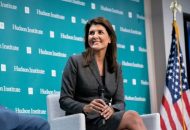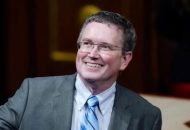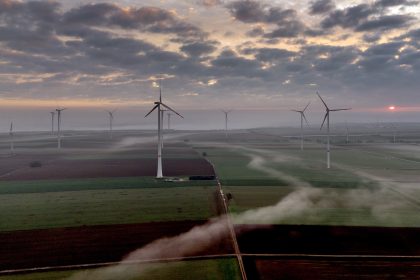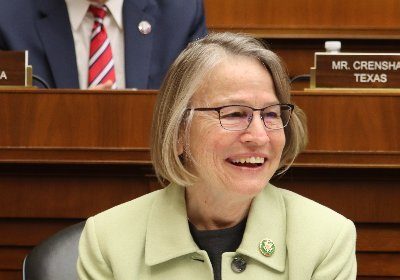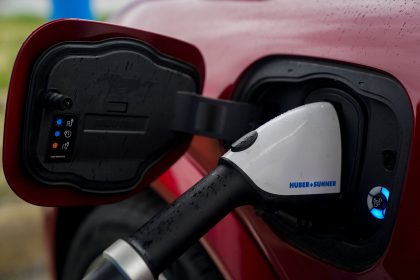Food for Thought: Agro Accounts for a Third of Global Emissions

WASHINGTON — While manufacturing and industry processes are cited as responsible for emitting the most greenhouse gases, food systems also account for a hefty portion — 31% — of global emissions, and the U.S. and China, as food superpowers, are the two largest contributors.
Emissions from food sources happen throughout the life cycle of food, in all aspects of production, processing, packaging, transportation, consumption and disposal. But at least one sustainable agriculture researcher is suggesting that, to change this, we should consider returning to farming techniques practiced for centuries before the Green Revolution of the 1960s.
“Sustainable agriculture is that which is capable of maintaining productivity and usefulness to society indefinitely,” Karen Mancl, an Ohio State University agricultural and biological professor, told The Wilson Center during a climate action discussion on Tuesday.
“Policies are needed to restore soils and move toward sustainable agriculture as a practice.”
She suggested these include policies to incentivize farmers to use less nitrogen, to encourage hauling sewage and manure as was the practice in China’s Tai Lake Region for some 900 years before the introduction of nitrogen fertilizers, and to incentivize farmers to rotate and grow multiple crops per year, as well as developing markets for these perennial crops.
But getting modern farmers to go back to hauling sewage from nearby cities and mixing human and animal waste to “balance the application” is a tall order, since purchasing nitrogen fertilizer, which Mancl admits is “the key to agricultural productivity,” was such a “logical and easy transition” that resulted from the “move to increase productivity and produce more food on [fewer] acres.”
Nitrogen fertilizers have changed farming as a business and allowed farms to produce more and better crops — up to a point.
“There’s a dark side to nitrogen,” Mancl warned. “If you apply more than the plants need … nitrogen becomes a pollutant contributing to greenhouse gas.”
Alongside carbon dioxide and methane, nitrous oxide is a greenhouse gas that also emerges from agriculture. It gets less attention, but actually could be more powerful and impactful than carbon dioxide, and 75% of it in the atmosphere comes from agricultural soil management.
This underscores researchers’ insistence that opportunities to take climate action really should take place in the earliest stages of the supply chain. That is, on the farm.
“If we want to meet zero-emission goals … we must recognize the potential of agroecology,” said Zhenzhong Si, postdoctoral fellow at Waterloo University, encouraging the application of ecological concepts to the design and management of sustainable agriculture and food systems.
“There has been a lot of focus on industry, but not much attention has been paid to the agricultural sector.”
So, too, said David Sandalow of the Center for Global Energy at Columbia University and co-founder of the Food Climate Partnership, who agrees that “in my experience the food system and the role of the food system and its relationship to climate change haven’t gotten enough attention.”
Because the impacts of temperature and food go both ways, and food systems and energy systems are also deeply intertwined from production to disposal, the Food Climate Partnership believes “to achieve net zero we must zero in on the food system.”
In addition to demand-side strategies, like focusing on consumption and food waste, which have generally been the focus of national efforts to reduce energy expenditure in the food supply up to this point, FCP suggests a range of supply-side strategies that increase energy efficiency across the full supply chain, including a focus on production and land use management.
Some of these strategies include sustainable land use to improve agricultural productivity and sequester more carbon in soils; creating more efficient distribution systems by shortening food supply chains and using climate-friendly refrigerants; and lowering on-farm emissions by using fuel-efficient farm vehicles, improving irrigation efficiency, reducing methane emissions from livestock production, and better management of chemical fertilizer and manure — such as Mancl proposed.
If these policies could be implemented in the United States and China, the world’s leading agricultural producers, agro-food emissions could be seriously reduced, especially since the actions of these two countries largely determines how the planet goes forward on food production.
“There is no solution to the challenge of climate change without [the] U.S. and China,” Sandalow insisted.
But whether farmers in these nations can be convinced to reduce nitrogen fertilizers and adopt other eco-conscious measures will require not just policy changes, but a mindset change as well.
Kate can be reached at [email protected]











